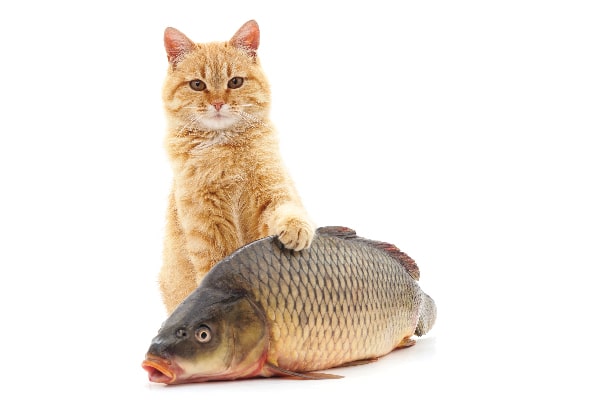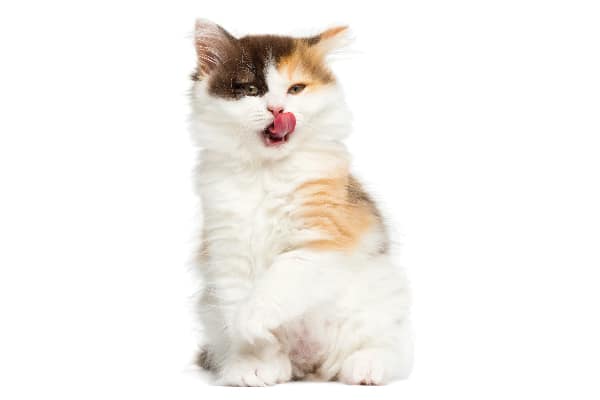Your little tiger is not much different. Domestic cats are true obligate carnivores who must eat meat in order for their bodies to receive certain compounds that are vital to their long-term health and well-being.
Cats need more protein than either humans or dogs, according to Deborah E. Linder, DVM, MS, Certified Veterinary Nutritionist, Director of the Animal Obesity Clinic at the Cummings School of Veterinary Medicine at Tufts University. Kittens need more protein than most other animals, and adult cats need two to three times more protein than dogs, she adds.
Vegetarian or vegan diets don't provide the amino acids needed for good feline health and are too rich in carbohydrates that cats can't assimilate, according to Marla McGeorge, JD, DVM, a feline consultant in Portland, Oregon.
(Is being vegan healthy for YOU? Come find out >>)
Obligate carnivores — what exactly does that mean?

Before going any further, let's clarify what exactly are the obligatory carnivores :
Compulsory (adjective): ob-li-gate - biologically essential for survival - limited to a particularly characteristic way of life
Carnivore (noun): car-ni-vore - an animal that feeds primarily or exclusively on animal matter.
Essential nutrients for cats
Taurine is a vital amino acid that cats cannot obtain from any other source than animal protein. Cats cannot make taurine from other amino acids like most mammals can," said Joe Bartges, DVM, PhD, DACVIM, DACVN, professor of internal medicine and nutrition at the University of Georgia College of Veterinary Medicine.
According to Dr. Linder, when cats are fed a diet too low in taurine, they can suffer from retinal degeneration, dilated cardiomyopathy and reproductive problems. While all cat foods should contain taurine, she says, the total amount in the diet is not the only important factor. Other ingredients in the diet can affect how taurine is broken down in the gut and its bioavailability to the cat, so it's important to feed a diet that has been carefully formulated and tested, she adds.
Cats also lack the enzyme needed to make their own arginine, another amino acid found in animal proteins, so more of it must be provided in their diet, according to Dr. Linder. Arginine is involved in the removal of ammonia from the body; if this function is impaired, cats can lose weight, vomit, suffer neurological problems and even die.
A diet rich in meat also provides vitamin A, a nutrient that cats are unable to convert from beta-carotene, as well as other key nutrients, including arachidonic acid and vitamin B12, which cannot be obtained in sufficient quantities from plant foods, according to Dr. Bartges. Without a regular supply of these nutrients, cats can suffer from liver and heart problems, not to mention skin irritation and hearing loss, he says.
Feline diets also require niacin and vitamin D3, according to Dr. Linder.
What protein is best for cats?

As for which animal protein is best for these obligate carnivores - beef, chicken or fish - there is no better type, according to Tony Buffington, DVM, PhD, DACVN, professor emeritus of veterinary clinical sciences at the Ohio State University College of Veterinary Medicine.
In fact, it doesn't matter whether a cat gets its protein from a dry or wet food, as long as it eats that food and meets its nutritional requirements," says Dr. Buffington. The key is to review the label. Labels on commercial cat foods must indicate that the product is formulated to meet the nutritional profiles of the Association of American Feed Control Officials and that it meets their guidelines for nutritionally complete, balanced and age-appropriate nutrition for your cat. Of course, if your cat has specific nutritional needs, always follow your veterinarian's recommendations," he adds.